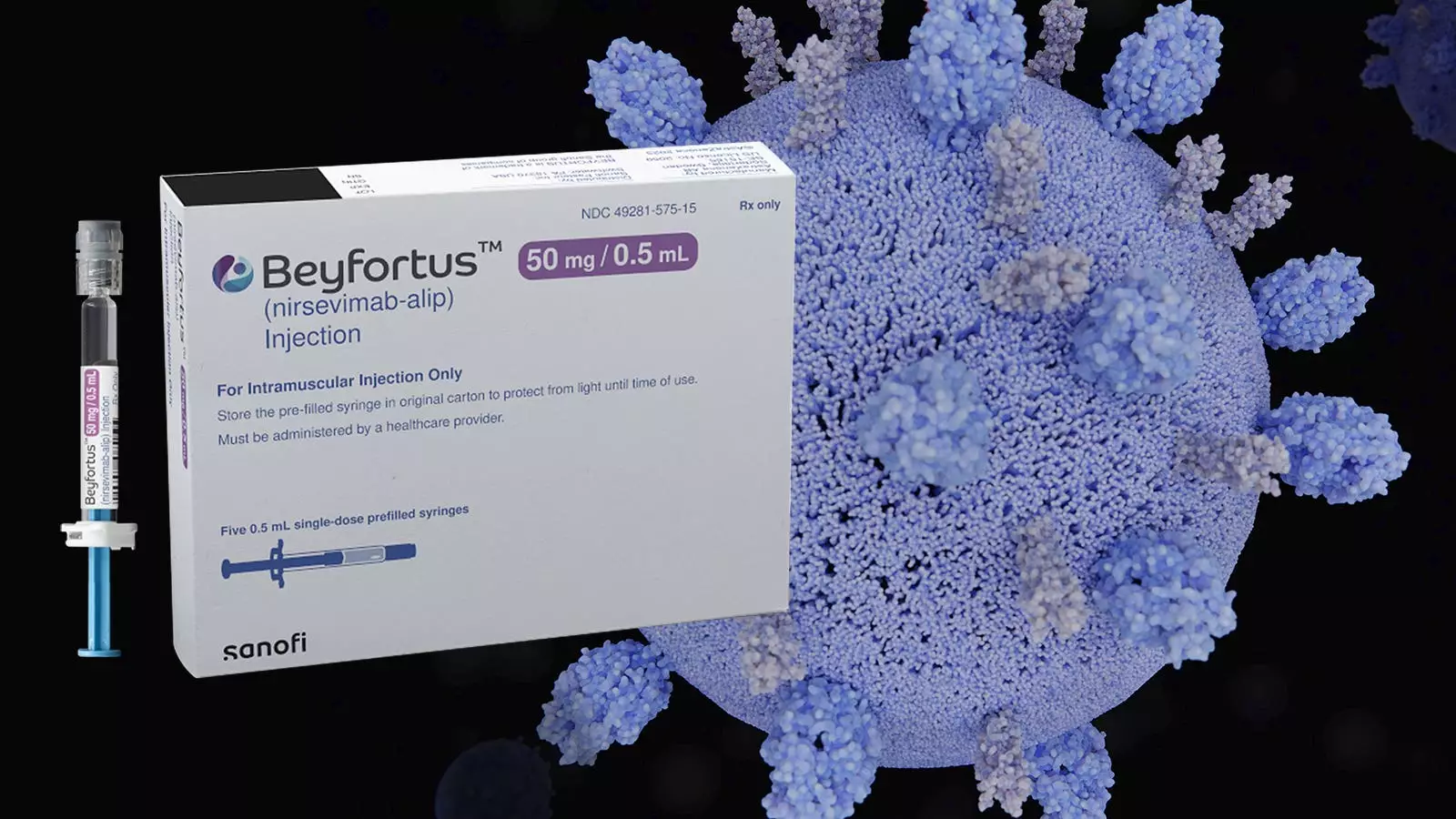The ENVIE study conducted in France shed light on the potential of the monoclonal antibody nirsevimab in protecting young infants against hospitalization for respiratory syncytial virus (RSV). The study reported significant effectiveness of nirsevimab in preventing RSV-related bronchiolitis, pediatric intensive care unit (PICU) admissions, and mechanical ventilation in infants younger than 12 months of age.
The findings of the study indicated that nirsevimab was estimated to be 83% effective in preventing hospitalization from RSV bronchiolitis in infants under 12 months of age. Additionally, the antibody demonstrated 69.6% effectiveness against RSV bronchiolitis leading to PICU admission and 67.2% effectiveness against RSV-associated bronchiolitis requiring ventilatory support. Despite lower effectiveness in infants with risk factors for bronchiolitis, nirsevimab still showed promising results in preventing hospitalization among this subgroup.
The case-control study design included 690 infants hospitalized for RSV-associated bronchiolitis (case patients) matched with 345 infants with clinical visits for reasons other than RSV (control patients). The study assessed the administration of nirsevimab at least 7 days before hospital visits and found varying percentages of infants receiving the monoclonal antibody among case and control patients.
The ENVIE study results were compared with the findings of prelicensure phase III trials such as the MELODY and HARMONIE trials. While the MELODY trial reported a slightly lower efficacy of nirsevimab in preventing RSV-related lower respiratory tract infections, the HARMONIE trial aligned closely with the ENVIE study results, showing approximately 83% effectiveness in preventing hospitalizations.
The authors of the study acknowledged several limitations, including the observational nature of the case-control design, early assessment of nirsevimab effectiveness after the initiation of the free-of-charge campaign, and potential biases due to shortages of the antibody. They also recommended considering seasonal campaigns for nirsevimab administration at the beginning of RSV outbreaks rather than continuous year-round treatment.
The ENVIE study provides valuable insights into the effectiveness of nirsevimab in preventing RSV-associated hospitalizations in young infants. While the results are promising, further research is needed to address limitations and optimize the implementation of nirsevimab prophylaxis to ensure its widespread benefits, particularly in low- and middle-income countries where RSV-attributable deaths are prevalent.



Leave a Reply